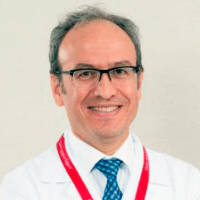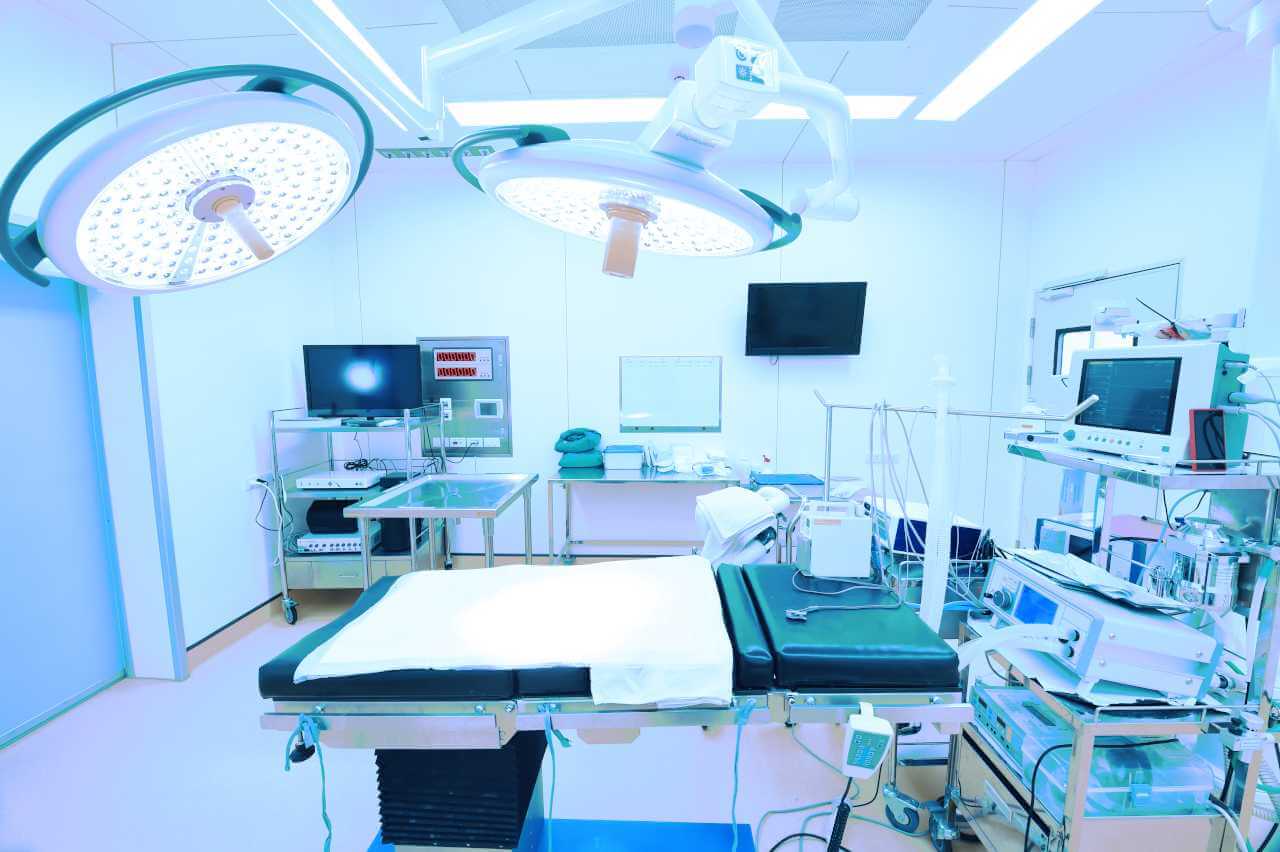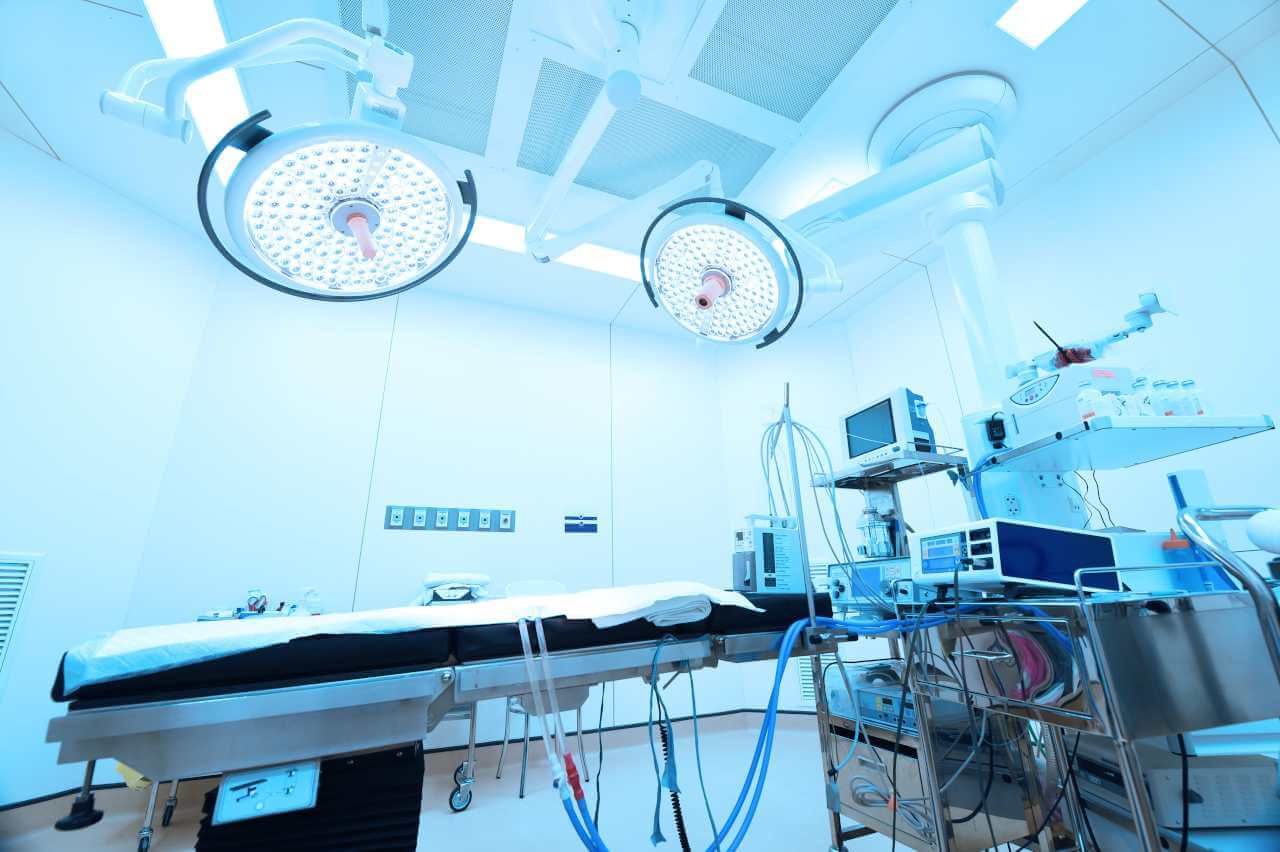
The program includes:
- Initial presentation in the clinic
- history taking
- general clinical examination
- laboratory tests:
- complete blood count
- biochemical analysis of blood
- urinalysis
- TSH-basal, fT3, fT4
- PSA blood test
- tests for urogenital infections
- indicators of inflammation
- indicators of blood coagulation
- ultrasound scan of the urogenital system
- renal scintigraphy
- PSMA PET-CT (on indication, additional cost)
- PSMA treatment
- full body scintigraphy after 24 hours
- full body scintigraphy after 48 hours
- symptomatic treatment
- cost of essential medicines
- nursing services
- elaboration of further recommendations
- stay in the hospital with full board
- accommodation in a room with 2 beds
How program is carried out
During the first visit, the doctor will carry out a general physical examination and go through the results of your previous laboratory and instrumental tests. After that, you will undergo any necessary additional tests, such as an assessment of your liver and kidney function, a scintigraphy of your skeleton and salivary glands, a PSMA PET/CT (additional cost). This will allow the doctor to calculate your individual dosage of the radionuclide.
PSMA therapy with Lutetium-177 is carried out via intravenous administration of a solution containing the radioactive isotope, Lutetium-177. The solution is injected through a catheter. This is a short procedure, as the infusion usually takes no more than 20 minutes.
During the procedure, you will need to apply cooling bags to your salivary glands, as Lutetium-177 partially accumulates in the salivary glands, affecting their function and causing a dry mouth. You will also receive intravenous saline solutions to protect your kidneys.
After the infusion of Lutetium-177, you will stay in a specially equipped (radiation-shielded) ward for 48 hours. The drug is quickly excreted by the kidneys, and after 48 hours you will no longer be dangerous to others. During these 48 hours, you can read, use a mobile phone, tablet or computer – none of these devices will be a source of radiation in the future.
Follow-up examinations include whole-body scintigraphy and computed tomography in 24 hours, and then again 48 hours after the procedure.
Required documents
- Medical records
- MRI/CT scan (not older than 3 months)
- Biopsy results (if available)
Service
You may also book:
 BookingHealth Price from:
BookingHealth Price from:
About the department
The Department of Nuclear Medicine at the Memorial Bahсelievler Hospital Istanbul offers the full range of diagnostics and treatment using radionuclide drugs. The department mostly diagnoses and treats patients with cancers, diseases of the cardiovascular system, skeletal system, thyroid gland, kidneys, etc. The Chief Physician of the department is Prof. Dr. med. Akın Yıldız.
The most popular procedures in clinical practice include scintigraphy, SPECT and PET. During the examinations, a radiopharmaceutical is injected intravenously to patients, after which the doctors use a gamma camera or PET system to make a scan. Unlike radiography, the radiation source is a radionuclide pharmaceutical drug, but not the device itself. The department has an excellent medical and technical base, as well as a brilliant professional personnel.
The department's doctors successfully perform diagnostic PET, which allows them to imagine anatomical structures, assess metabolic and physiological processes in the human body. In most cases, PET is used for the diagnostics of cancer, cardiac pathologies and diseases of the nervous system. PET uses short-lived isotopes, so the radiation exposure to a patient is equivalent to several chest x-rays. The radiopharmaceutical emits positrons at the place of accumulation in the body. They interact with electrons, after which an annihilation reaction takes place, causing the release of gamma radiation. During the examination, the patient lies on a movable table, which automatically slides out into the central opening of the scanner. The electronic equipment of the PET scanner registers the detected gamma radiation, due to which the area of accumulation of the radiopharmaceutical is imagined in the scan.
Single-photon emission computed tomography (SPECT) is also one of the most informative diagnostic examinations in modern medicine. SPECT is most often used if cancer is suspected. With the help of emission tomography, the doctor can detect the areas with impaired metabolism, which is typical for cancer cells. In especially complex clinical cases, SPECT is combined with MRI, which gives the most accurate results.
The department's range of medical services includes:
- Diagnostic procedures
- Scintigraphy
- Bone scintigraphy
- Liver scintigraphy
- Lung scintigraphy
- Parathyroid scintigraphy
- Thyroid scintigraphy
- Salivary gland scintigraphy
- Kidney scintigraphy
- Myocardial scintigraphy
- Positron emission tomography (PET).
- Single-photon emission computed tomography (SPECT).
- Scintigraphy
- Therapeutic procedures
- Radioiodine therapy for thyroid cancer, thyroid hyperfunction
- Radiosynovectomy for the treatment of chronic inflammatory processes in the joints
- Pain therapy with radioactive isotopes for bone metastases
- Other diagnostic and therapeutic services
Curriculum vitae
Professional Career
- Since 2018 Head of the Department of Nuclear Medicine at the Memorial Bahсelievler Hospital Istanbul.
- Since 2011 Work in the Department of Nuclear Medicine at the Medstar Antalya Hospital, Antalya, Turkey.
- 1998 - 2011 Lecturer in Nuclear Medicine at the Faculty of Medicine, Akdeniz University, Istanbul, Turkey.
- 1997 Specialist in Radiology, Atatürk Education and Research Hospital, Izmir, Turkey.
- 1992 - 1993 Specialist in Nuclear Medicine, Ankara Oncology Hospital, Ankara, Turkey.
Higher Education and Postgraduate Training
- 2010 Internship, Mount Sinai Hospital, New York, USA.
- 1993 - 1997 Research Internship, Department of Radiology, Faculty of Medicine, Dokuz Eylül University, Izmir, Turkey.
- 1988 Research Internship, Nuclear Medicine, Trakya University, Edirne, Turkey.
- 1988 - 1991 Research Internship, Nuclear Medicine, Akdeniz University, Antalya, Turkey.
- 1981 - 1987 Study of Human Medicine, Faculty of Medicine, Akdeniz University, Antalya, Turkey.
Awards and Honors
- April 2015 Poster Award, 21st National Cancer Congress.
- March 2013 Best Performance Award, 8th Interventional Radiology Meeting.
- November 2013 Best Performance Award, 34th National Congress of Radiology.
- 2007 Encouraging Award, 12th National Congress of Pediatric Endocrinology and Diabetology.
Memberships in Professional Societies
- Turkish Society of Nuclear Medicine.
- Turkish Society of Radiology.
- European Society of Radiology.
- European Association of Nuclear Medicine.
Photo of the doctor: (c) Memorial Bahçelievler Hospital
About hospital
The Memorial Bahçelievler Hospital Istanbul is an advanced multidisciplinary medical center that began its clinical practice in 2018. It is part of the world famous Memorial Healthcare Group. The hospital was designed in accordance with the very latest standards of modern architecture with the aim of providing top-class medical services in a pleasant and patient-oriented environment. It is worth noting that the interior of the medical facility is full of live plants, which have a positive impact on people and their mood. The hospital is awarded the prestigious LEED Platinum Certificate, confirming the highest level of environmental friendliness and safety of the buildings of the medical complex.
The hospital has 320 beds for patient hospitalization. The medical and technical base of the hospital is one of the best and most advanced in Turkey – modern diagnostic rooms with MRI, CT, PET-CT scanners, gamma cameras, X-ray equipment, mammography systems and other equipment, 15 operating rooms, including for robot-assisted, endoscopic and hybrid surgical interventions, intensive care units, etc. The hospital also has a high-performance state-of-the-art Elekta Versa HD SIGNATURE system for radiation therapy.
The powerful technical resources of the hospital are complemented by a highly professional medical staff, who have achieved significant success not only at the national level, but also in the international medical arena. The doctors and nursing staff of the hospital are distinguished by excellent medical qualifications, as well as humane and compassionate attitude towards each patient. They strongly support their patients on their way to recovery.
The medical center admits not only Turkish citizens for treatment, but also patients from 92 countries of the world, and therefore it boasts a wealth of experience in serving international patients with clinical cases of varying complexity.
Photo: (c) Memorial Bahçelievler Hospital, (c) depositphotos
Accommodation in hospital
Patients rooms
The patients of the Memorial Bahçelievler Hospital Istanbul live in cozy rooms with an excellent layout and modern design. The standard patient rooms are equipped with a comfortable automatically adjustable bed, a bedside table, a table and a chair, a wardrobe, a sofa for receiving visitors. The patient room also includes a TV, a telephone and Wi-Fi. Each room has an ensuite bathroom with shower and toilet. The hospital also provides patients with enhanced-comfort rooms corresponding to a five-star hotel.
Meals and Menus
The patient and the accompanying person are offered tasty and balanced three meals a day. If for some reason you do not eat all foods, you will be offered an individual menu. Please inform the medical staff about your food preferences prior to treatment.
Further details
Standard rooms include:
Accompanying person
During the inpatient program, the accompanying person can live with the patient in a patient room or a hotel of his choice. Our managers will help you choose the most suitable option.
Hotel
During an outpatient program, the patient can stay at the hotel of his choice. Our managers will help you choose the most suitable option.




